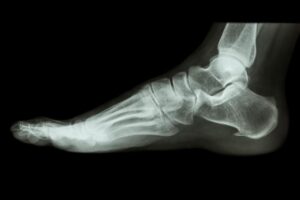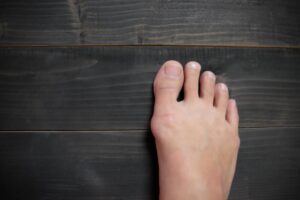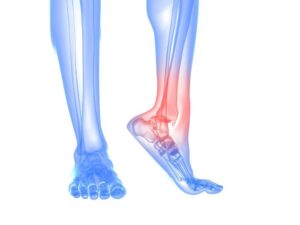10 Leading Causes of Foot Pain

Your feet get you out of bed in the morning and take you where you need to go, making them one of the most important parts of your body. When you get pain in your feet, it can make it extremely difficult to get your to-do list done.
Foot pain can be varied in how you experience it and have a number of different causes. When your foot pain is making it difficult to go about your day, board-qualified podiatrist Ryan Golub, DPM, of Arizona Foot Health in Phoenix, Arizona, recommends getting your pain evaluated for a quick diagnosis and faster resolution to your pain.
Learn 10 of the most common causes of foot pain and how your foot pain can get treated.
Understanding foot pain
Almost everyone has experienced foot pain at some point in their life. Foot pain can range from mild to severe, and it can be sudden, chronic, sharp, dull, achy, or cause numbness and tingling.
Moderate-to-severe or ongoing foot pain can mean you have a foot condition that needs professional treatment to get better.
The 10 leading foot pain causes
Foot pain can come from a vast number of sources. Ten of the most common problems indicated by foot pain are:
1. Injury
Any trauma or injury your foot experiences can cause pain, which can be minor or excruciating depending on the severity of your injury. Injuries you can get in your feet include sprains, broken bones, and fractures.
2. Bunions
Bunions occur when your big toe turns inward, and a bony bump develops next to the bottom of the inside of your toe. Bunions can be quite painful and can make walking, especially in shoes, hurt.
3. Arthritis
Arthritis causes inflammation and swelling in your body and often develops in the foot or ankle. Arthritis can make your feet feel painful and tender.
4. Peripheral neuropathy
Peripheral neuropathy damages nerves in your body and often occurs in the feet of people with diabetes. It can make you feel tingling, prickly sensations, and numbness in your feet, as well as sharp or burning pain.
5. Bursitis
Bursitis occurs when you have inflammation in the fluid-filled sacs in your foot or ankle. It can make your feet feel stiff, achy, and hurt when you put pressure on the area.
6. Stone bruises
Stone bruises are deep bruises you can get in the ball of your foot or heel. Stone bruises can be painful when you walk and make it feel as if you are walking on a hard stone.
7. Hammertoes
Hammertoes occur when your toes incorrectly bend at the joint nearest to the top of your foot. They can make you get painful calluses and corns on your toes and make it difficult to comfortably move your toe.
8. Tendinitis
You get tendinitis when your tendon becomes irritated or inflamed. This can cause tenderness and pain in the area around your foot or ankle joint that is inflamed.
9. Feet structural issues
If your feet have structural irregularities, including flat feet and high arches, this can make walking painful.
10. Ingrown toenails
You develop an ingrown toenail when your toenail improperly grows into the skin next to it. This causes pain and irritation in the area where your toenail has ingrown.
Treating your foot pain
The treatment of your foot pain depends on the condition causing your symptoms. To create a treatment plan, Dr. Golub evaluates your feet, including ordering further testing and imaging if needed, to determine why you are experiencing pain.
Some types of foot pain can resolve through conservative home care, including resting and icing your foot and taking over-the-counter medications. For more invasive pain and conditions, Dr. Golub might also suggest physical therapy, prescription medications, orthotics, corticosteroid injections, immobilizing your foot through a brace, splint, or cast, and pulse wave therapy.
If you’re experiencing chronic or severe foot pain, make an appointment today online or by phone at Arizona Foot Health for a customized treatment and pain relief plan.
You Might Also Enjoy...
The Achilles Heel
Given Arizona’s climate, patients are able to remain active year round. It’s why we all chose to live here. But…
Alleviating Back Pain and Other Benefits of Custom Orthotics You Didn’t Know About
Would you ever imagine that custom foot orthotics could improve your quality of life? That’s what many people say after…
9 Helpful Tips to Prepare Your Home Before Bunion Surgery
When moderate interventions, such as wearing wider shoes or using pads in your shoes, fail to ease your bunion pain…
When Should You Go to the Doctor for an Ingrown Toenail?
In most cases, you can nurse an ingrown toenail at home with over-the-counter pain medication, topical antibiotic creams, and soaking…
6 Home Exercises to Keep Your Ankles Strong
Ankles that feel wobbly and weak are vulnerable to injury. If you play sports, run, jump, or just walk often,…
Is Surgery My Best Option For Treating Bunions?
You have a bunion and it isn’t pretty, but if your bunion is small enough, or doesn’t hurt, you may…






